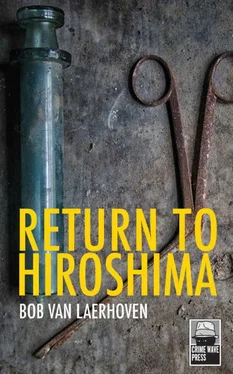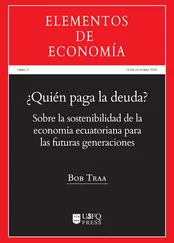He feels like a tiny cog in a huge machine, turning and churning, stirring the pot.
After the confrontation with his mother and the realisation that he had killed the wrong man, Takeda suffered a nervous breakdown and took sick-leave for four months. It wasn’t appreciated. The force had little sympathy for policemen with mental problems, a reality he had to deal with later when he still struggled to pass the inspector’s exam in spite of being significantly older than the other candidates. When he got back on his feet, he decided it was time for a new Takeda. Prior to his breakdown he had been the model policeman, following orders to the letter wherever possible, a born yes man. But now he seemed to have developed such an instinct for crimes and the motives behind them that his colleagues and superiors started to talk behind his back of his “sixth sense”. Rumours gradually spread about his talents and Takeda was even tempted to believe in them himself. Fortune and accident combined to help him solve a couple of difficult cases. Once he had separated himself from the pack, he inevitably drew attention to himself; not exactly an advantage in Japan. His superiors used him with relish to get results, but they didn’t trust him; not only because he was a half-breed, but now because of what they called his eccentric behaviour. Takeda resigned himself and cultivated his image. It helped him forget the past and come to terms with the fact that he was destined to be an average run-of-the-mill police officer for the rest of his life. He channelled his underlying vengefulness and ambitions into the cases that came his way and gradually developed a sense of pride in being a lone wolf. At the same time he learned to live with the widespread corruption that riddled the force in a country where losing face was the worst thing that could happen to a person and crime figures were kept artificially low. The outside world saw Japan as an anthill society in which everyone played their part to the best of their ability, but Takeda was convinced that the Japanese were the biggest anarchists on the planet, they just managed to keep it under wraps.
Years passed, time flew.
Now he was sitting behind the wheel of a rented car on his way to Tokyo to save his own skin.
But was his skin worth saving, he asked himself. He had treated his wife as an object of little value. He had indulged his hidden desires on whores. The thin line he had walked for so many years reminded him of the months of fear that had followed the death of Masajiro and the slowly evolving conviction after the event that he wasn’t going to be caught.
But I should have been caught. That thought kept him focussed and helped him mask the dark side of his character. It was only in the tiny, tidy, impersonal cubicles of the love hotels that he was able to reveal the true Takeda. But he would drive home afraid after each visit: a police inspector who enjoyed a bit of hard-handed action with prostitutes was exposed to any number of dangers. Sooner or later he was going to rough up a woman who worked for the yakuza and his unusual appearance would make him easy to find. Takeda knew he was playing with fire; perhaps he wanted to be punished . He asked himself time and again if he did what he did because he hated his mother. Then he would try to cultivate feelings for her, but nothing ever came, beyond a slight sense of irritation, as if she hadn’t suckled him enough.
As tears go by. Takeda remembers a Rolling Stones song he had to translate when he was a student. He has no idea what makes him think about it now.
But what he does know is that the tears in his life have gone by without him being able to cry them.
Tokyo – Hibiya line – Ueno Station – metro heading to Naka-Meguro – Takeda – Monday March 20 th1995
Takeda has the taste of ash in his mouth. He spent the entire previous day in his hotel room being chased by memories and being forced to confront himself once too often. He had called the Public Security Commission and passed through the usual echelons before being granted an appointment. An appointment on March 19th wasn’t possible, which left him with a day on his hands to mull over his chances again and again.
7.58am. The Hibiya line is packed as usual. Takeda squeezes between the other passengers as they push towards the door of the train. A railway official dressed in the familiar green uniform and regulation white gloves tries to prevent all the pushing and shoving from getting out of hand. Two men wearing surgical masks board the train behind him to his right, not an unusual sight on overfull metro trains where bacteria has free reign. Decent people wear a mask out of respect for their fellow travellers when they feel a cold coming on. One of the men is carrying an attaché case and an umbrella, just like hundreds of thousands of others on their way to work in the metropolis. He squeezes in behind Takeda. The other walks past him.
* * *
Takeda tries to organise his thoughts. He can’t appear nervous in front of the Commission. He dives into his memories as he used to dive into the sea in his youth when he wanted to be alone. He remembers his first holiday job selling tyres for a car-part firm and how he stammered and stuttered in front of his first customer. At university he joined a Buddhist organisation called Soka Gakkai, but it didn’t last. The path to inner peace was not for him, although he longed for tranquillity in the depths of his being. Several months police-training in Tokyo followed, the city without beginning or end, where millions of people work, dream, fight and fuck. The metropolis always worked him up, and now the same old fever invades his bones in spite of his best efforts to think serene thoughts. He looks around the compartment. The train slows down. Akihabara Station is the next stop. The man with the surgical mask behind him places a number of parcels wrapped in newspaper on the floor and looks around. At that instant Takeda looks over his shoulder in response to what feels like a tingling in his neck. Their eyes meet and for a moment Takeda is confronted with his own loneliness. He turns back and is unaware that the man behind him is poking the parcels on the floor with the sharpened tip of his umbrella. The train stops. The man wedges up against Takeda to get off. There’s a chemical smell in the air, the smell of concentrated cleaning fluid. The man pushes Takeda aside and jumps onto the platform. Takeda shakes his head at his rudeness, but is quickly confronted by a new sensation: a hurried crowd pushes and shoves its way into the carriage. The inspector tries to stand his ground against the increasing pressure from the bodies around him. The smell in the compartment becomes penetrating, like nail varnish remover. The passengers begin to shout, push to the front, gasping for air. Takeda feels an oncoming wave of nausea. His eyes are irritated and his chest tight. The scene in the compartment begins to undulate as if he’s under water. A mother of a headache sets in.
* * *
The second man was chosen because of his skills as a metro pick-pocket. He’s young, smart, cheeky, and equipped with lightning reflexes. Like his accomplice, he was given an injection of atropine that morning, an antidote for sarin. Small, agile and slightly cross-eyed, he knows precisely what to do. When the passengers start to cough and rub their eyes, he has to do the same to avoid drawing attention to himself. The adrenalin begins to pump. He watched his companion leave the train and he knows that it’s now his turn. When panic breaks out he sees Takeda lose balance. Not long now. The train is approaching Kodemmacho station. A couple of passengers have found the source of the deadly fumes: three plastic bags on the carriage floor. When the train stops they kick the bags onto the platform. In their panic they hit people trying to board the train. Chaos breaks out on the platform and people start to scream. Takeda falls to his knees, snot pouring from his nose and a yellowish fluid from his mouth. The second man stoops and grabs the attaché case his victim has been holding with both arms the entire time. Takeda looks at him with bloodshot eyes and makes a feeble gesture, as if insisting the man give him his bag back. He knows, the second man thinks. He knows what I want from him. He spits in Takeda’s face, jumps from the train, skilfully avoids the convulsing bodies on the platform, and rushes towards the exit with the attaché case clasped to his chest. He runs outside as the sirens begin to wail in the distance. He hums, almost imperceptible, his favourite song: Lord Death Counts His Followers.
Читать дальше












